MCQ ON MUTATION THEORY class 12 for NEET | MUTATION THEORY class 12 | MCQ MUTATION THEORY with Answer | Check the below NCERT MCQ question for class 12 Biology based on the with Answers.
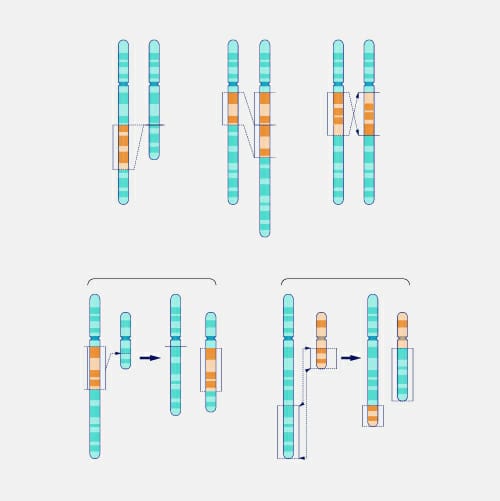
MCQ ON MUTATION THEORY class 12 for NEET
MCQ on MUTATION THEORY class 12 Biology with answers were prepared based on the latest pattern.We have provided class 12 Biology MCQs questions on MUTATION THEORY with Answers to help students understand the concept very well.
MCQ ON MUTATION THEORY is useful for NEET / CSIR / UGC / CBSE / ICSE / AIIMS / EXAM / AFMC EXAM / STATE LEVEL MEDICAL EXAM 2022-23, 2023-24
Introduction:
Evolutionary biology is the study of history of life forms on earth.To understand the changes in flora and fauna that have occurred over millions of years on earth , we must have an understanding of the context of origin of life , of stars, of earth and indeed universe itself.This is the story of origin of life and evolution of life forms or biodiversity on planet earth in the context of evolution of earth and against the background of evolution of Universe itself. Evolution is revealing of hidden potential ties that bring about an orderly change from one condition to another.Cosmic evolution deals with the sequence of changes that occur in inorganic matter and its evolution. Darwinism or theory of natural selection is a theory of organic evolution which states that newly species evolve over a long period of time through accumulation of small variation which provides organisms overs structural and functional superiority over others In their survival and differential reproduction.
With the reader discovery of mendel’s work in 1900 it became clear that inheritance was particulate the origin of variations was first suggested by Hugo De Vries in 1901. Mutations are discontinuous variations. In 1901 Hugo de Vries purposed mutation theory evolution in his book species and varieties their origin by mutation.
MCQ ON MUTATION THEORY SELECTION class 12 for NEET
1. The origin of variation was first suggested by
(a) Hugo de Vries
(b) Weismann
(c) Lamarck
(d) Darwin
Ans (a) Hugo de Vries
2. Single step large mutation is called
(a) saltation
(b) sports
(c) continuous variation
(d) discontinuous variation
Ans. (a) saltation
3. Mutations are
(a) continuous variation
(b) discontinuous variations
(c) micro genesis
(d) sports
Ans. (b) discontinuous variations
4.Who proposed mutation theory of evolutions ?
(a) Darwin
(b) Weissman
(c) Hugo de Vries
(d) Lamarck
Ans.(c) Hugo de Vries
5. Theory explaining the mechanism of evolution based on change of gene structure was put forwarded by
(a) Hugo De Vries
(b) Darwin
(c) Lamarck
(d) Wallace
Ans.(a) Hugo de Vries
6. Genetic variation in population arrises due to
(a) mutation as well as recombination
(b) reproductive isolation and selection
(c) mutations only
(d) recombination only
Ans.(a) mutations as well as recombination
7. Which factor does not take part in the process of evolution
(a) natural selection
(b) mutation
(c) inorganic evolution
(d) habitual adaptation
Ans.(d) habitual adaptation
8. This discontinuous variations are
(a) essential features
(b) required character
(c) non essential changes
(d) mutations
Ans.(d) mutations
9. To related but geography isolated species are known as
(a) sibling species
(b) allopatric species
(c) taxonomic taxonomic species
(d) sympatric species
Ans. (b) allopatric species
10. Biologist call Darwin of 20th century was
(a) Darwin
(b) Lamarck
(c) Hugo de Vries
(d) Ernst Mayers
Ans. (d) Ernst Mayers
11. Mutations are considered raw materials of evolution because
(a) gene flow
(b) change in gene structure
(c) contribution to new variations
(d) change in gene frequency
Ans.(c) contribution to new variations
12. Hardy venberg equilibrium is influenced by gene flow , genetic drift, genetic recombination , natural selection and
(a) evolution
(b) over production
(c) limiting factor
(d) mutations
Ans . (d) mutations
13. modern theory of evolution is based on the
(a) mutations
(b) natural selection
(c) genetic recombination
(d) all the above
Ans.(d) all the above
15. Which one does not help in understanding evolution
(a) mutation
(b) natural selection
(c) embryogenesis
(d) isolation
Ans. (d) isolation
16. Every cells of body contributes gemmules to the germs cells and so shares in the transmission of inherited characters this theory is known as
(a) theory of inheritance of acquired characters
(b) theory of germ plasm
(c) theory of pengenesis
(d) theory of quotations
Ans.(c) Theory of pangenesis
17. Ultimate source of variation is
(a) natural selection
(b) sexual reproduction
(c) genetic drift
(d) mutation
Ans.(d) mutation
ALSO READ:-
● YOU CAN WATCH BIOLOGY SIR Youtube channel
18. Formation of nice species from pre existing one is
(a) speciation
(b) mutation
(c) isolation
(d) polyploidy
And.(a) speciation
19. New species develops due to
(a) isolation and mutation
(b) competition and mutation
(c) isolation and competition
(d) isolation and variation
Ans. (a) isolation and mutation
20. Reproductive isolation is
(a) inability to interbreed
(b) ability to interbreed
(c) breeding in isolation
(d) intra specific breeding
Ans.(a) inability to interbreed
21. Hugo de Vries proposed mutation theory of evolution in the study of inheritance in plant
(a) evening primrose
(b) pea
(c) sunflower
(d) none of the above
Ans.(a) evening primrose

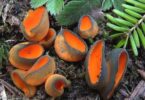
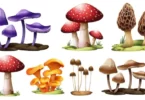
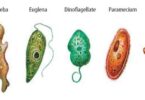
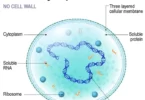
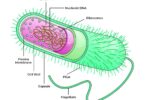
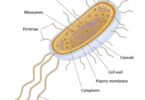
Leave a Comment